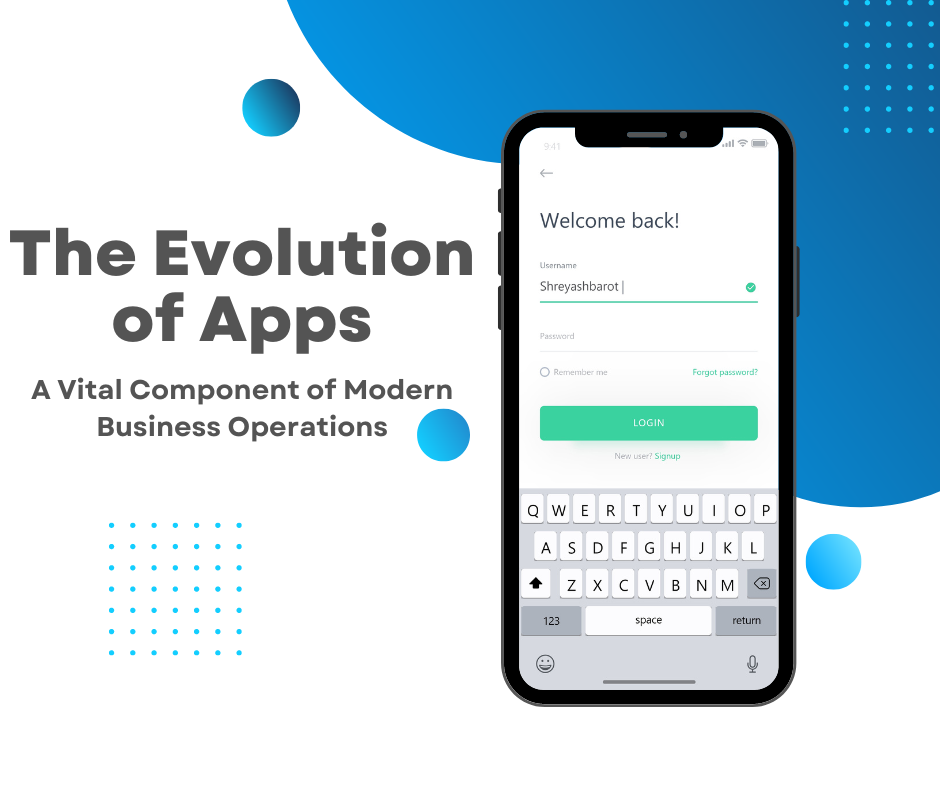
The Evolution of Apps
The Evolution of Apps: A Vital Component of Modern Business Operations
In today's fast-paced digital landscape, the integration of technology has transformed the way businesses operate. Among the most impactful innovations are mobile applications, commonly known as apps. From startups to multinational corporations, apps have become an integral part of daily business functions, revolutionizing the way companies interact with customers, manage operations, and achieve growth. In this post, we'll explore how apps have emerged as a cornerstone of modern business operations.
- Enhancing Customer Engagement: Gone are the days when businesses solely relied on traditional forms of communication. Apps have empowered companies to connect with their customers more directly and efficiently. Customer engagement apps allow businesses to share real-time updates, offer personalized recommendations, and provide instant customer support. Whether it's through push notifications, in-app messaging, or interactive features, apps enable businesses to create a seamless and engaging experience for their audience.
- Streamlining Operations: Apps have revolutionized internal operations by simplifying various processes. From project management to inventory control, apps offer tailored solutions that enhance efficiency and productivity. Enterprise-level applications assist in resource allocation, team collaboration, and task tracking, making project management smoother and more transparent. Furthermore, apps for supply chain management and inventory tracking help optimize logistics and reduce wastage, ultimately contributing to cost savings.
- Expanding Market Reach: Apps have opened up new avenues for businesses to reach a global audience. With the rise of e-commerce and m-commerce, companies can now conduct transactions and sell products or services directly through their apps. This expanded reach eliminates geographical limitations and offers a convenient shopping experience for customers worldwide. For instance, food delivery apps and online marketplaces have completely transformed the way we purchase goods and services.
- Data-Driven Insights: Data is often hailed as the new gold, and apps have a significant role to play in collecting and analyzing valuable business data. Through user interactions, app usage patterns, and purchase behaviors, businesses can gain valuable insights into customer preferences and market trends. This information helps in making informed decisions, refining marketing strategies, and tailoring products or services to meet specific demands.
- Building Brand Loyalty: Apps have become a direct channel to foster strong brand-customer relationships. By offering loyalty programs, exclusive discounts, and personalized content, businesses can keep their customers engaged and encourage repeat interactions. Brands that succeed in building loyalty through their apps benefit from long-term customer relationships and positive word-of-mouth marketing.
- Agile Adaptation: The dynamic nature of apps allows businesses to adapt quickly to changes in the market or customer preferences. Unlike traditional software, apps can be updated seamlessly to introduce new features or address issues. This agility enables businesses to stay relevant in a constantly evolving landscape.
- Competitive Edge: In today's competitive business environment, having a well-designed and functional app can set a company apart. An app not only improves customer engagement but also showcases a business's commitment to innovation and customer-centricity. It can be a powerful tool to attract new customers and retain existing ones
Conclusion:
Apps have undoubtedly become a cornerstone of modern business operations, redefining the way companies interact with customers, manage their processes, and grow their brand. As technology continues to advance, businesses will need to keep up with the latest app trends and innovations to stay ahead in the game. Whether it's enhancing customer engagement, streamlining operations, or expanding market reach, apps offer a plethora of opportunities for businesses to thrive in the digital age. Embracing this technological evolution is no longer a choice; it's a necessity for sustained success.





